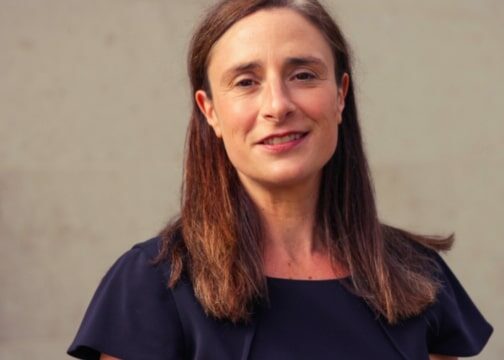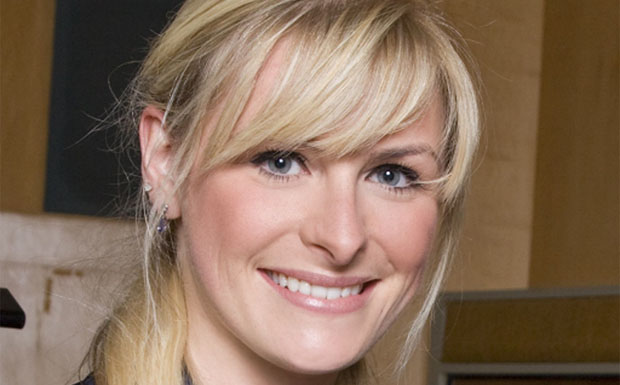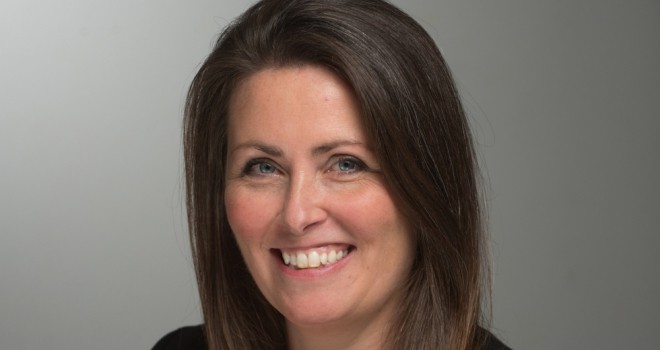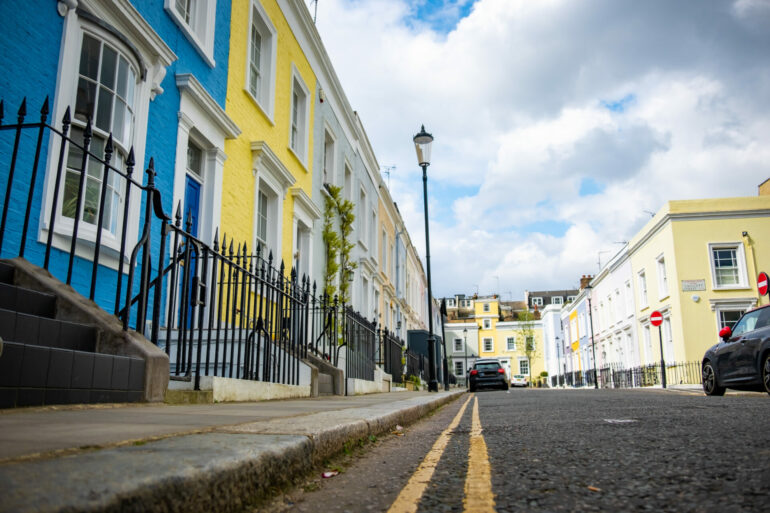House prices increased by 1.8% in June marking the twelfth consecutive monthly rise, according to the Halifax House Price Index.
The annual growth rate of 13% is the highest seen since late 2004. The typical property now costs £294,845.
Northern Ireland once again topped the table for annual house price inflation, up by 15.2%, equating to an average property price of £187,833.
Wales also continued to record a strong rate of annual growth, up by 14.3%, with an average property cost of £219,281.
Meanwhile, the South West saw the highest annual house price growth of any region in England, at 14.2%, where a typical home now costs £308,128.
Scotland too saw an increase in the rate of annual house price inflation, up to 9.9%. A Scottish home now costs an average of £201,549, breaking through £200,000 for the first time in history.
London continues to lag behind other regions in terms of annual house price inflation (+7.1%), though with an average property price of £547,031 it remains by far the most expensive place in the UK to buy a home.
Russell Galley, managing director, Halifax, said: “The UK housing market defied any expectations of a slowdown, with average property prices up 1.8% in June, the biggest monthly rise since early 2007.
“This means house prices have now risen every month over the last year, and are up by 6.8% or £18,849 in cash terms so far in 2022, pushing the typical UK house price to another record high of £294,845.
“The supply-demand imbalance continues to be the reason house prices are rising so sharply. Demand is still strong – though activity levels have slowed to be in line with pre-Covid averages – while the stock of available properties for sale remains extremely low.
“Property prices so far appear to have been largely insulated from the cost of living squeeze. This is partly because, right now, the rise in the cost of living is being felt most by people on lower incomes, who are typically less active in buying and selling houses.
“In contrast, higher earners are likely to be able to use extra funds saved during the pandemic, with latest industry data showing that mortgage lending has increased by the highest amount since last September.
“Of course, the housing market will not remain immune from the challenging economic environment. But for now it continues to demonstrate – as it has done over the last couple of years – the unique combination of factors impacting prices.
“One of these remains the huge shift in demand towards bigger properties, with average prices for detached houses rising by almost twice the rate of flats over the past year (+13.9% vs +7.6%).
“In time though increased pressure on household budgets from inflation and higher interest rates should weigh more heavily on the housing market, given the impact this has on affordability.
“Our latest research found that the strong rise in property prices over the last two years, coupled with much slower wage growth, has already pushed the house price to income ratio up to a record level.
“So while it may come later than previously anticipated, a slowing of house price growth should still be expected in the months ahead.”
Reaction

Sundeep Patel, director of sales at specialist lender, Together said:
“House price increased by 1% in May. But the overall rate seems to be slowing down- even if only slightly. However, activity within the property market continues to prevail despite the cost-of-living crisis and inflationary pressures.
“The property market is expected to slow further this summer as households continue to contend with rising costs and other spending priorities, which will likely stall some property purchases.
“The Bank of England is expected to increase interest rates come August, creating an even more sluggish market.
“However, this continued challenging economic outlook could lead to a housing market correction in the coming months.”
Michael Aldridge, director of Bath and Chippenham-based Lucra Mortgages:
“Despite the growing number of doom and gloom prophecies, the housing market continues to defy logic and house prices continue to boom. Some analysts predicted the property market would be on its knees by now but despite an apparent perfect storm it still remains extremely buoyant.
“Without doubt, the squeeze on household spending will start to have an impact on demand and, in turn, prices, but several factors are counterbalancing this. Housing stock remains phenomenally low, employment levels very high and though interest rates are rising, they are still at historically low levels.
“Add to this a surge in demand for holiday lets and second homes, coupled with the rush from first-time buyers to get onto the ladder ahead of the looming help-to-buy deadline, and I believe the market will remain strong until the end of the year at least.
“Beyond this, with further rate rises very likely and the jump in the energy price cap in October, then next year could be when any marked slowdown occurs. Even then, I certainly wouldn’t predict a crash.”
Imogen Sporle, head of term finance at London-based broker, Finanze:
“Despite this extraordinary data, it’s not a case of if house prices crash but when. Whether the full crash happens this year or next, it’s coming.
“Demand in the property market will cool due to painfully high inflation. Inflation is the property market’s nemesis and is hitting sentiment for six.
“Lenders becoming more conservative with affordability is sensible in the current climate but of course this will mean people can borrow less, which means sellers may soon have to price lower. Even then people may struggle to purchase properties in the current climate, whether financially, psychologically or both. There are tough times ahead.”
Charles Yuille, managing director of Bath-based Willow Brook Mortgages:
“The property market has passed beyond surreal, that much is for sure, with prices in the South West in particular moving full steam ahead.
“Though we will almost certainly see a moderation in the rate of house price growth in the second half of the year, the egregious lack of stock will prevent any material drop in house prices.
“The cost of living crisis is definitely hitting wallets and confidence hard but for now the employment market remains strong. However, we are in a highly volatile market, economically, geo-politically and on the domestic political front. Chaos in the House of Commons has the potential to hit sentiment.”
Rob Gill, founder of London-based Altura Mortgage Finance:
“Having posted double-digit growth during a global pandemic, it’s a brave person who bets against the UK property market.
“There’s every chance house prices will shrug off war in Europe and the cost of living crisis, albeit with more modest growth, especially as property has always been a good inflation hedge.”
Jeremy Leaf, north London estate agent and a former RICS residential chairman:
“Despite concerns over the rising cost of living and interest rates, the excess demand over supply continues to hold sway and is driving activity. The number of appraisals and listings is increasing but not fast enough to keep up as sellers try to take advantage of the market peak, or at close to it as possible, but transactions are slowing and lengthening.
“Looking forward, we expect the market won’t be immune to changes in the wider economy and are already seeing signs of a rebalancing but no evidence of major corrections in prices for the time being at least.”
Mark Harris, chief executive of mortgage broker SPF Private Clients:
“Although the schools are breaking up as we head towards the traditionally quieter summer months, there are still plenty of people keen to move, although rising interest rates may temper the ambitions of some as to what they can afford.
“It’s not only house prices which continue to rise but mortgage rates are also on the up, with pricing in the 3 to 4% range depending on mortgage length and loan-to-value.
“Borrowers are still keen to secure fixed-rate mortgages to protect themselves from further rate rises but have to move quickly as lenders continue to reprice at short notice.”
Ross Boyd, founder of the always-on mortgage comparison platform, Dashly.com:
“The property market is on a plane of its own, answering to its own rules and logic. It consistently cocks a snook at economic reality. Economic conditions have deteriorated significantly in the past few months at the same time as interest rates have risen and yet the property market is booming.
“More rate rises are almost certainly on the cards as the Bank of England attempts to control inflation. It’s inconceivable to think the housing market will remain unaffected by the current interest rate cycle.
“The property market will continue to cool throughout 2022 and in 2023. When they come to remortgage, it will be less a case of rate shock for many borrowers but rate trauma. The pending remortgage crunch will significantly add to the cost of living crisis. The cost to rent has hit another record high and that will drive a degree of demand as people seek to get onto the ladder.”

Andrew Montlake, managing director of the UK-wide mortgage broker, Coreco:
“More insane, economics-defying growth from the UK housing market. It’s like bricks and mortar in The Upside Down. Inflation is soaring, rates are rising, our government is in chaos and house price growth is off the scale.
“Despite this exceptional growth figure, increased borrowing costs and the immense pressure on household finances will almost certainly start to temper demand in the months ahead, which will see the rate of price growth slow further during the second half of the year.
“The one constant in these times of flux, of course, is the lack of supply and homes being built. The abject lack of good quality, affordable housing will support prices even as we go through an unprecedented cost of living crisis.”
Graham Cox, founder of the Bristol-based broker, SelfEmployedMortgageHub.com:
“I’ll be surprised if house prices aren’t falling by the end of the year at the very latest. We’re noticing more people holding off buying now, spooked by the economic outlook, higher mortgage rates, and the expectation that property prices will soon fall.
“We’re also likely to see more distressed sellers, unable to afford the mortgage alongside other debts and all the other cost of living increases. A long, deep recession could turn a trickle of forced sellers into an avalanche.”
Scott Taylor-Barr of Shropshire-based broker, Carl Summers Financial Services:
“House prices don’t tend to crash without mortgage finance drying up first. It’s never that people don’t want to buy property, it’s that they aren’t able to that stifles demand. So, without there appearing to be any reason on the horizon for banks to suddenly stop lending, where does that leave property prices?
“My best guess is that we’ll see prices plateau in the coming months, with a period of little or no growth, with some areas even seeing small negative growth numbers. This is mainly due to us starting to reach the top of lenders’ affordability models.
“People want to move but when we calculate the size of mortgage their incomes generate, they end up short on the property they ideally want to move to. And let’s not forget rapidly dwindling confidence as fears over the cost of living and increasing interest rates dominate the headlines.”
Andrew Simmonds, director at Bristol-based Parker’s Estate Agents:
“The right properties valued at the right level will always sell. Unfortunately, vendors have seen the market grow exponentially over the past few years and, more often than not, are asking to list their property at a slightly over-egged asking or guide price.
“We are seeing valuers down-value properties more often than not, but as a rule anyone who challenges a valuation with strong evidence does tend to turn a valuer’s perspective.
“We are seeing more stock enter the marketplace than we have experienced in the past 12 months, but buyers are now contracting back into their shells a little. The rest of 2022 will be interesting. I certainly do not see the same growth as previous years, perhaps fairly static values and certainly not prices falling, at least not yet.”
Robert Payne, director of Bristol-based Langley House Mortgages: “
While the unsettling combination of inflation, rate rises and the war in Ukraine suggests we are heading towards troubled waters, the property market has continuously shone through uncertainty and my prediction is that we will see more of the same.
“I do think we will see adaptive behaviour from homeowners as many have borrowed to their maximum capacity on the lowest interest rates in our history so they may start to struggle with increased payments on rates, which have since doubled.
“One particular change I think we may see is borrowers asking to lengthen their mortgage terms to reduce the monthly payments. I also think we may see an increased number of owners requesting consent to let their property and moving back in with family, rather than climbing the property ladder as they would have done previously.”
Jamie Lennox, director at Norwich-based mortgage broker, Dimora Mortgages:
“Though there is still demand, a growing number of buyers are putting their plans on hold due to the uncertain economic and political climate. We’ve got fireworks in Government at the same time as the economy is under a huge amount of pressure.
“The main threat to the housing market is the rate at which lenders’ fixed rate deals are increasing right now.
“Customers we quoted at the beginning of the year who are now revisiting the idea of buying are finding that that same mortgage they could have got six months ago is going to cost them hundreds of pounds per month more, which has then priced them out of a purchase.
“The balance of power between buyers and sellers is certainly shifting, with buyers using fears around the economy as leverage in their offers. This week we had a number of clients’ chains nearly collapse at the eleventh hour as buyers decided they were overpaying for the property and wanted a huge reduction on the agreed purchase price.”
Joe Garner, managing director at London-based property developer, NewPlace:
“Lenders are tightening up on affordability checks, the cost of living has increased sharply and the jobs market is flatlining, which should be a recipe for house prices to tumble. However, this isn’t the case, for now at least. What matters is whether inflation is at the peak or still getting warmed up.
“The average price of a new home in Coulsdon, Croydon (Zone 6 of London) is now an eye watering £540k with detached properties selling for an average of £770k. With a 10% deposit plus stamp duty, first-time buyers will need a deposit of £54k and stamp duty of £17k.
“That is £71k in cash required to buy an average house in Croydon for a first-time buyer. It’s insane. Mortgage affordability is becoming increasingly difficult to achieve for young, first-time buyers due to the dramatic rise in the cost of living.
“An average salary in the London Borough of Croydon is £35k. In the first-time buyer bracket, this drops to £30k.
“Without Help to Buy or any other financial assistance, the average first-time buyer can afford to borrow between £120k and £150k, which would mean a deposit requirement of £390k.
“How is this sustainable or achievable? It is likely we will see a big shift towards a New York style ‘rent before you buy’ model that will see a mass movement of 20-30 something year old first-time buyers into build to rent, private rent and co-living schemes.
“This has the potential to completely re-invent the housing model, market and prices for generations to come.”

Sarah Coles, senior personal finance analyst, Hargreaves Lansdown:
“There was more torment for tenants in June, as prices raced away for a 12th consecutive month. Those left behind by rising prices, are faced with the double-whammy of desperately trying to boost their deposit, at the same time as paying ever-increasing rents.
“Zoopla figures show new rental costs are up 11% in a year, and the longer it takes renters to hit their savings target, the more they’ve seen prices rise out of reach.
“The level of demand has now dropped back to roughly where we were before the pandemic, but the fact that so few properties are available is keeping prices high. Eventually the reality of rising prices will take its toll on confidence and cool the market, but we’re not there yet, and renters are paying the price.
“The sheer pace of price rises are impossible to match with super-fast saving, Since the beginning of 2022, house prices have risen £18,849, so just to stand still, renters saving for a 10% deposit would have had to add almost £1,900 to their savings pot.
“Given the fact that hikes in the cost of everything from food to fuel have been unbearably painful since the start of the year, this is an impossible challenge.
“Rising prices may make homeowners feel wealthier, but they’re pushing renters further into the mire. Almost a fifth of people rent privately (19%), and a similar number live in social rented housing (17%), so more than a third of people are facing unbearable pressure as prices rise.
“The HL Savings and Resilience Barometer, produced with Oxford Economics, shows that renters are less financially resilient on almost every measure than their home-owning counterparts.
“They have less money left over at the end of the month, less in emergency savings, they’re more likely to be in arrears with bills and debts, and they’re not on track for retirement. It’s hardly surprising given that keeping a roof over their head costs so much more than it does for those who own their own home.
“So while homeowners will be keeping their fingers crossed for a gentle tapering of house prices, and a return to more sedate price rises, there will be renters who can’t help hoping for prices to back off, to at least give them a chance of getting out of the rental cycle and taking a breather on the bottom rung of the housing ladder.””
Mark Robinson, managing director of Southampton-based Albion Forest Mortgages:
“I am expecting house prices to continue to rise over the next 12 months, but almost certainly more gradually than in previous years.
“Our June figures show an increased level of enquiries as well as an increase in mortgage offers, so people are certainly still buying, often driven by a desire to escape the rental market, where rents are stratospheric.”
Imran Hussain, director at Nottingham-based Harmony Financial Services:
“Despite the crazy June data, property prices are almost certainly going to stabilise by the end of the year with minimal growth, especially with the cost of living rising once again in October. I don’t expect any noticeable increase in house prices for the rest of the year but equally I don’t expect a material drop either, as activity levels remain fairly strong and demand still outstrips supply.
“The main threat to property prices will be employment levels as the cost of living is already spiralling out of control and a surge in unemployment will put property prices under pressure.
“Though recent rate rises rate were meant to slow or curb demand in some people’s eyes, all it’s done is got rid of the dreamers meaning the serious buyers can crack on with business. Though some sellers are still being unrealistic on price, a properly priced property flies quicker than a toupee in a hurricane.”
Paul Neal of Derbyshire-based Missing Element Mortgage Services:
“It’s still a busy market out there and that’s reflected in this latest record-breaking house price index.
“Many people are waiting in the wings for prices to come down, so we are expecting a flurry of activity again in the latter states of the year.
“The boiling pot that has been the property market for the past two years is finally reducing to a simmer.
“The market is beginning to slow and we are seeing lenders up their rates across the board. Expect to see a flurry of first-time buyer activity in the months ahead with the Help to Buy scheme due to end in October, although with lenders tightening affordability it’s becoming harder than ever for generation rent to get on the ladder.
“Rates are almost certainly set to increase, but we don’t need to panic as they are still low historically.
“The lack of stock will continue to support house prices through the cost of living crisis. What we desperately need is more affordable housing stock, not stock that is snapped up by landlords or builders to make a fortune on. Reliable, affordable housing for everyday people.”
Dominik Lipnicki, director of Your Mortgage Decisions:
“With such limited supply, the housing market remains robust, but price increases are set to be a lot more modest by the end of the year. Inflation, higher taxes as well as the anticipated October hike in energy prices will dampen demand.
“Rising mortgage rates have already diminished affordability for many borrowers and this will only get worse as the year progresses. Lenders are already being cautious around affordability and this approach will only become more conservative as the year progresses.
“The danger of a possible recession or stagflation would of course change the outlook and would shift the balance of power to buyers.”
Sabrina Hall of Lichfield-based Kind Financial Services:
“The market is still strong but it’s looking like we are seeing an end to the craziness of one property getting 20 to 30 views and resulting in a bidding war.
“Despite the cost of living crisis and the restrictions on affordability I’m still seeing a lot of demand from house buyers and it doesn’t seem to have put buyers off up till now so this will help to keep the mortgage market from crashing. I expect by the end of the year we will be on our way to seeing some correction of the boom that happened during Covid.”

Nicky Stevenson, managing director of national estate agent group Fine & Country:
“We are seeing house price growth continue to spike even as the U.K. economy edges closer to recession.
“The slowdown predicted by so many has yet to materialise in any real sense despite an increase in borrowing costs and a squeeze on household incomes.
“Existing homeowners continue to make huge gains with competition among buyers still at fever pitch.
“While a more aggressive tightening of monetary policy is anticipated later in the year, the cooling effect is likely to be gradual given the acute shortage of housing stock which persists right around the country.
“The boom which has sustained itself for so long is still bubbling strongly.”
Lewis Shaw, founder of Mansfield-based Shaw Financial Services:
“The answer to the direction of house prices may well lie with the Halifax, specifically the fact that they have just increased their exposure to new builds to 95% LTV across the board. Until now, almost every mainstream high street lender would want a minimum of 15% deposit for a new build house.
“Since Halifax has now reduced the minimum deposit to 5% on new builds, they must think or know something we don’t, namely house prices aren’t going anywhere anytime soon. This move by one of the best and most well-respected lenders in the UK should give everyone pause for thought.
“Moreover, it should give added confidence in the property market, mortgage market and the economy more generally. It opens up thousands of smaller developers and developments to a far greater first-time buyer audience than was possible before and sidesteps requirements to use any weird and wonderful schemes.
“To me, this move in itself signal things may just be alright. Also, let’s not forget we are still facing the lowest stock levels since records began, which will continue to support prices.”
Edward Checkley, managing director of London-based property finance specialists, Advias:
“It is hard to see how there will be a property crash when the shortfall in property stock remains a constant problem. Though rising interest rates are tempering buyers’ enthusiasm, in historic terms borrowing costs still present reasonable value.
“Looking forward to 2023, should inflation not fall and interest rates continue to rise, property values may see a correction to compensate for additional finance costs. However, this may not be the case if inflation eases and interest rates remain relatively attractive.
“We may see short-term corrections in regional locations, where buyers fought over idyllic property and areas during the pandemic. A compensating factor for the market in general may be the relatively weak pound and the international appeal of London, which may entice foreign property investment into the capital.”
Anthony Lomas, partner at Derby-based estate agents, Boxall Brown & Jones:
“We don’t see prices falling, simple economics would suggest with lowering supply and a frustrated pool of demanding buyers, prices are likely to continue to grow. It feels like it will be a while before the demand is satisfied. I think it waits to be seen if buyers have “paid over the odds.” It was clearly necessary to secure the house they wanted.
“Chances are, they could currently sell their house for more. If the market does cool and buyers have no need to sell, time should auto-correct any negative equity.”
Marcus Wright, MD of Bolton Business Finance:
“The fate of the housing market is in the hands of the Bank of England. Average mortgage rates have already shot up in the past six months due to base rate rises and could go up further. The simple fact is that the higher interest rates go, the less people will be able to borrow due to affordability criteria.
“This will inevitably hit house prices if Threadneedle Street ploughs ahead with more rate rises to contain inflation.”

Tomer Aboody, director of property lender MT Finance:
“Property prices have risen for the twelfth consecutive month, indicating an exceptionally buoyant market due to still-low mortgage rates and buyers taking advantage of these before they rise higher due to inflation.
“House buyers are still looking to make a move before potentially they are not able to afford to do so, due to higher mortgage rates.
“Lack of confidence in the government going forward may well affect the market and halt the continued rise in prices.
Buyers may feel there is an opportunity to act now, taking advantage of relative stability as we don’t know what’s around the corner.’
Anna Clare Harper, director of real estate technology platform IMMO:
“The reason behind annual house price growth of 13% is simple: supply is insufficient, and new supply is too slow to meet rising demands. This problem is being made worse by uncertainty and volatility, which is making housing seem a relatively safe place to put money.
“Meanwhile, supply chain challenges include construction material price inflation of 20% plus and there are ongoing planning backlogs from lockdown. On top of this, relative to house prices, money is still relatively cheap to borrow.
“This supply-demand imbalance – the fundamental problem – will likely be made worse by policy tinkering, such as the proposed extension of the right-to-buy discount scheme for social tenants to those in housing association properties. It seems foolish to encourage further demand when we are not meeting existing market demand.
“What policy makers need to consider is that delivering quality housing to the people who need it, at prices they can afford, is not the same as facilitating home ownership.
“The impact of public money spent helping to improve the rental sector – either private or social – would be far greater, and far more likely to meet actual housing demands, since what people and families actually need is decent housing in the places they want and need to live, and flexibility for when personal or work needs require them to move.”
Rhys Schofield, managing director at Belper-based Peak Mortgages and Protection:
“House prices are still going to be higher by the end of the year, as the data we see now is based on what value house sales were agreed five months ago and that will take time to feed through.
“Demand is still very much there and the drastic shortage of property stock just keeps driving prices up.
“We still have a shortfall on UK housing stock of about 4 million properties so until that changes, which seems incredibly unlikely given the track record of successive governments, the inflationary pressure on house prices will not subside.”
Karen Noye, mortgage expert at Quilter:
“The housing market has defiantly marched on for yet another month, reaching the twelfth consecutive monthly house price increase in June. According to this morning’s Halifax house price index, the long-awaited housing market slowdown is still yet to materialise, and prices have instead seen yet another uptick. The pace of growth rose to a 1.8% increase in June, up from the 1% increase seen in May, and the average UK house price now sits at £294,845.
“The past two years have seen a whirlwind of growth for the housing market driven by a wide array of factors, not least the stamp duty holiday which took place during the pandemic. However, despite the uptick seen this month, a year on from the first stage of its withdrawal we are finally starting to reach the end of the rampant market situation it kick started. People have now adjusted to their post-pandemic lifestyles, but with inflation set to hit double figures within a matter of months, the cost of living rising rapidly and further interest rate hikes expected, people are being forced to tighten their purse strings.
“What’s more, the regular Bank of England interest rate hikes seen since they first began in December have virtually annihilated what was left of the already dwindling number of cheap mortgage rates and limited people’s spending power considerably.
“With wages quickly falling behind, the high costs of moving home will put off prospective buyers and first-time buyers will see their hopes of getting a foot on the property ladder pushed even further out of reach.
“Should demand fall as expected, house prices could soften over the coming months and we could see a reversal of prices in the autumn when the true scale of the energy crisis comes to light as temperatures fall.
“While the housing market has so far defied the odds in taking on the challenges thrown at it in recent years, the cost-of-living crisis will no doubt be its biggest battle yet.”
Conor Murphy, CEO, Smartr365 responds to the latest Halifax HPI:
“This morning’s numbers indicate there is no slowing down for what has been a remarkably intense period of house price increases with a 1.8% rise in house prices in June, the biggest monthly rise since 2007.
“Indeed, as house prices continue rise at an unabated rate, the market is showing every sign of its ongoing strength, despite wider economic challenges.”
“With high levels of demand remaining, brokers’ ongoing priority will be making the mortgage journey as efficient as possible.
“Time lost to administration is fundamentally time not spent giving clients expert advice. Automating administrative processes, whilst focusing on providing clients with valuable advice, will not only foster good relationships but generate more business in the process. Amidst the current economic climate, this will pay dividends.”

Emma Cox, MD of Real Estate at Shawbrook:
“It’s not surprising that wider economic headwinds are now beginning to weigh on the property market.
“The cost-of-living crisis, stuttering GDP growth and rising rates are all contributing to the cooling effect.
“House price growth has proved remarkably resilient, not least because of low stock levels. However, pressure on household finances and future rates decisions are likely to put more force on the brakes in the coming months.
“Mortgage providers still have a strong appetite to lend to buyers. It’s important for borrowers to carefully review the options on offer and consider locking in a deal that will shield them from future uncertainty.
“Stability in the long-term can only be achieved with a balanced market of quality, affordable, energy efficient properties. Government support is crucial to reaching that goal.”
Peter Beaumont, CEO at The Mortgage Lender:
“The race to fix is well and truly on for borrowers, as the Bank of England earlier this week made signs that interest rates could increase higher in the coming year to combat rising inflation.
“Prospective homeowners and those re-mortgaging will be looking to secure the most-competitive rates while they still can. This drive from prospective buyers is helping to keep the heat in the market and stave off the predicted cooling off period.
“With price growth still strong the balance of power in the market remains firmly with the seller. Lenders continue to be keen to lend to the right applicants.
“Those individuals looking to get onto the ladder or remortgage who may have more complex circumstances such as a blip on their credit score should consider looking beyond traditional lenders to alternative, specialist options.”



